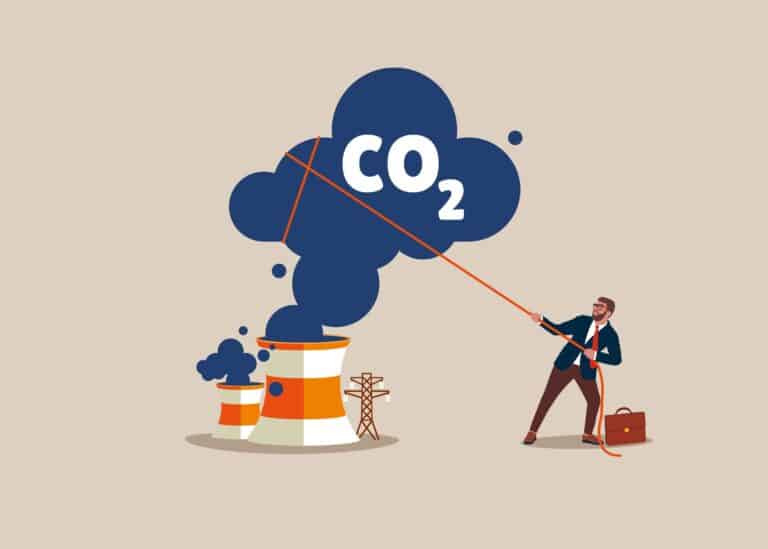My previous article, focussing on the destructive impact of the increasing motor-fuel carbon taxes that are a key feature of the Justin Trudeau government’s climate change policies, included the following comment: “The Parliamentary Budget Officer has concluded that these rising motor fuel taxes are ‘broadly regressive,’ meaning that the economic impact will fall disproportionately on lower-income people already struggling to pay the rising cost of groceries and other necessities…And the cost of all their necessities will, in turn, be driven even higher by carbon taxes levied on the fuels used in their production and delivery. How ironic that a self-described ‘progressive’ Liberal government kept in power by the deeply socialist NDP – both of which are allegedly dedicated to protecting the poor – is fighting a war on carbon emissions on the backs of those who can least afford it.”

After a devastating wildfire season, which many politicians and much of the mainstream news media attributed to climate change, it’s understandable that many Canadians may be wondering if paying those rising carbon taxes – scheduled to hit $95 per tonne of carbon dioxide emissions the year after next – may be a sacrifice we must make to fight the purported climate “emergency.” But would those carbon taxes make any difference whatsoever? My article pointed out that calculations using data from the government’s own Greenhouse Gas Emissions website show that, if all gasoline and diesel-powered vehicles in Canada were taken off the road for a full year, the total emissions avoided would offset China’s emissions for just 56 hours.
And that brings me to the focus of this article. China’s annual CO2 emissions have skyrocketed from 3.6 billion tonnes in 2000 to an estimated 11.5 billion tonnes in 2021, according to Statista. The country is now responsible for more CO2 emissions than the United States, India, Indonesia, Russia, Brazil, Japan and the 27-country European Union – combined. And China’s emissions continue to grow unchecked even as those of many other countries are relatively flat or even declining. The U.S., often portrayed as the world’s worst polluter, greatly reduced its overall emissions in the 2010-2020 period and currently emits less than half as much CO2 as China. (Canada’s emissions, on a global scale, represent barely more than a rounding error.)
Guilbeault, a man whose environmental fanaticism is exceeded only by his naïveté, journeyed to a recent CCICED meeting in Beijing, fantasizing publicly that he could actually get China to agree to ‘a global renewable energy target.’ The Chinese state-controlled media (i.e., propaganda organs) immediately slapped down the upstart Quebecker.
China has long promised to reduce emissions from coal-fired electricity generating stations, but it’s clear those promises are just a charade. Last year, China’s government granted construction permits for the equivalent of two large new coal-burning power plants – every week. That was some 106,000 megawatts of new capacity approved over the course of the year, four times as much as the year before. It also represents more than 10 times the capacity of all the coal-fired plants that Alberta has taken out of service over the past decade. China now has six times more coal plants under construction than the rest of the world combined. Moreover, while China touts the ostensible environmental benefits as the world’s dominant manufacturer of wind turbine blades and solar panels, the use of coal-power to manufacture them offsets much of the eventual environmental benefit.

China’s charades haven’t deterred federal Minister of Environment and Climate Change Steven Guilbeault from accepting appointment as the Executive Vice-Chair of the so-called China Council for International Cooperation on Environment and Development (CCICED). Nor have they prevented the Liberal government from sending taxpayers’ money to help fund it. But the CCICED isn’t really an international environmental cooperation entity. It’s run entirely by Beijing – meaning it is yet another front for the Communist Party of China and its many nefarious activities around the world, including interfering in Canada’s elections and operating secret police stations in our country.
This “council” is clearly aimed at simply perpetuating the myth of Chinese environmental responsibility. But Guilbeault, a man whose environmental fanaticism is exceeded only by his naïveté, journeyed to a recent CCICED meeting in Beijing, fantasizing publicly that he could actually get China to agree to “a global renewable energy target.” As the saying goes, not bloody likely. The Chinese state-controlled media (i.e., propaganda organs) immediately slapped down the upstart Quebecker.

Data from the World Bank show that China’s greenhouse gas emissions per unit of GDP – what is known as “emissions intensity” – are two-and-a-half times as high as in North America. Moreover, since zero-emissions hydropower provides nearly 60 percent of Canada’s electricity and much of the rest is supplied by low-emission natural gas, Canadian manufactured goods are vastly less emissions-intensive than most goods imported from China. This means that one of the best things Canada could do to help reduce global CO2 emissions would be to replace Chinese imports with goods manufactured at home. National borders are, after all, irrelevant to atmospheric gases, so it shouldn’t matter where emissions are cut. The other would be to greatly accelerate construction of liquefied natural gas (LNG) export facilities so that other countries could replace dirtier electricity production with clean-burning Canadian natural gas, but that is the subject of another article.
Instead, the Trudeau government is burdening our manufacturers with progressively higher carbon taxes that affect costs all along their supply chains. Canadian manufacturers are already struggling to survive. A report last year from the Canadian Manufacturers and Exporters (CME) underlines the challenges facing Canadian manufacturers, even before the staggering costs of the government’s “net zero” policy. “To achieve net zero,” the report stated, “CME estimates that Canadian manufacturers will need to invest $6 billion per year in emissions technology alone…while still trying to invest in capital programs.”
But that investment capital is increasingly scarce: between 2015 and 2019, Canada attracted less than $22 billion of the $1.77 trillion invested annually in manufacturing. Global investors, banks and manufacturers just don’t regard Canada as a good place in which to commit capital and establish new facilities any longer – unless those facilities happen to be prodigiously subsidized, as shown by the recent tens of billions of taxpayers’ dollars promised to Stellantis and VW for electric vehicle battery manufacturing plants in Ontario.
Meanwhile, Canadian imports of Chinese manufactured goods reached a record $100 billion in 2022. So why is the Trudeau government eviscerating Canadian manufacturing and burdening all Canadian businesses and individuals with debilitating carbon taxes while we import ever-increasing amounts of carbon-intensive Chinese goods? The answer to that question may elude Trudeau’s carbon tax-fixated government.

But the solution is obvious: take the carbon taxes off the shoulders of Canadians and transfer them to carbon-spewing Chinese imports. The mechanism would be to categorize the different types of imports by carbon intensity and set the tax rate accordingly. This may seem like a complex process, but it’s vastly simpler than the mish-mash of regulations facing Canadian businesses under the job-killing Trudeau/Guilbeault carbon tax. China’s emissions charade has gone on far too long. It’s time to lift the carbon tax burden from the shoulders of Canadians and place it where it might actually help the planet.
Gwyn Morgan is a retired business leader who was a director of five global corporations.
Source of main image: Shutterstock.





